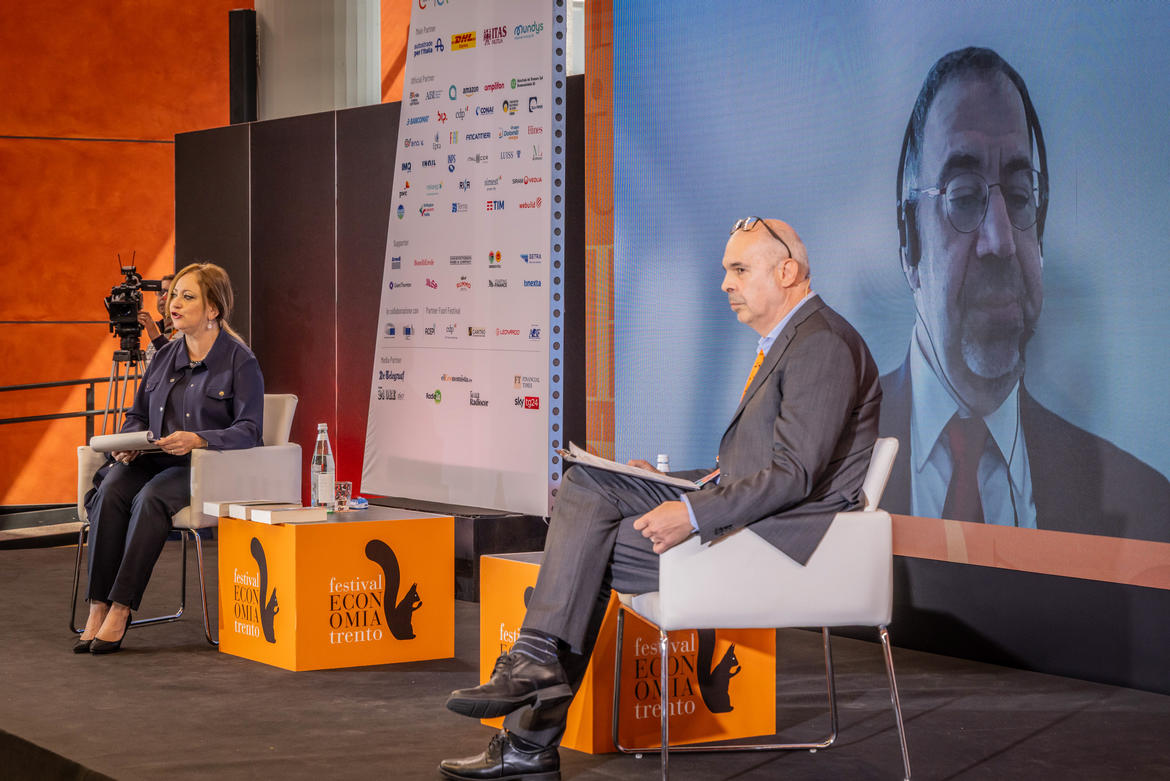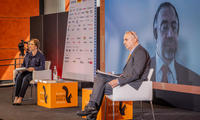
At the heart of the lecture was a reflection on interconnected key areas: power, productivity, wealth distribution, progress, and innovation. Looking back at 40 years of global tech development, the discussion uncovered a hard truth: productivity gains have not translated into broadly distributed wealth. Whether AI becomes a game changer or just deepens inequality depends on how it will be developed and implemented. As the conversation unfolded, it became clear that innovation must be redirected to serve human capabilities; that institutions matter, and that both Europe and the U.S. must rethink their roles as leaders heading to a more inclusive, democratic technological era.
In his keynote lecture, the professor asked a pressing question: who really benefits from technological innovation? Drawing a line from the British Industrial Revolution to today’s AI revolution, he warned that productivity gains don’t automatically lead to shared prosperity. “We had to invent a term for it, the ‘productivity backwagon’, because it was once taken for granted that when productivity rose, so did wages”. But that is no longer the case. From the 1980s onward, in the U.S. wage growth split along educational lines, manual labor was sidelined, and automation became a key driver of inequality. True progress, he insisted, lies in redirecting innovation to enhance human capabilities, not replace them: “We need a better ideology for AI, to design it so as to complement human abilities”. But to achieve this, democratic societies must reclaim agency from corporate monopolies and foster not just regulation, but meaningful, human-centered innovation.
In the final exchange with the public, questions ranged from policy to geopolitics. On the delicate balance between minimum wage and automation, Acemoglu reminded the audience that while higher wages can push firms to automate, they also support a vision of AI that complements rather than replaces human work. Regulation came up again: “It was a policy decision to allow these companies to become big”, he said, calling for stronger antitrust cooperation between the EU and the U.S. Europe, he argued, has a unique chance to shape a more democratic AI path, “but it needs to put its money where its mouth is”. And in closing, he turned to the new generations: it is the youth, he said, who must stand “at the forefront of humanistic and technological understanding”.








